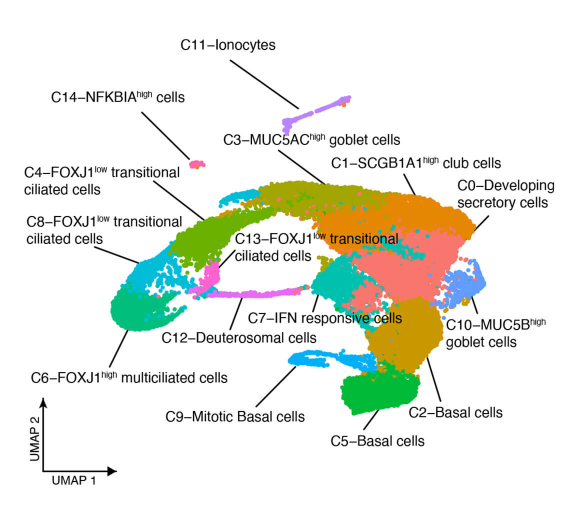Unexplained Protection
Dr. Jayavelu always wanted to be a medical doctor, but the enormous cost of medical school put that dream out of reach. Instead, he became a chemical engineer. Still, the desire to advance medicine never left his mind.
“I learned about systems biology and found it fascinating, so I enrolled in a PhD program,” he says. “Now, I apply mathematical and statistical principles to human disease research.”
Dr. Jayavelu joined BRI as the pandemic started, and was soon using his expertise in data analytics to learn why some people with asthma seem to resist severe COVID-19. Sifting through huge swaths of data collected from samples from children with asthma revealed a surprising finding: Inflammation in the lungs took away the virus’ ability to make copies of itself and spread through the body. He even found the exact genes and cells behind this process.
“We were surprised to learn that T2 inflammation makes it harder to get infected in the first place, and prevents the virus from becoming more severe,” Dr. Altman says.
Data Experts Fuel Discoveries
While vaccines have been the key to curbing COVID-19, learning about other means of protection is still important — and fascinating.
“We read about unlikely sources of protection in textbooks, like how having one copy of the gene for sickle cell disease can help protect against malaria. But it was fascinating to see this play out firsthand,” Dr. Altman says. “Other than age, asthma seems to be the best intrinsic protection from severe COVID-19. This study explained exactly why that is and could be extremely relevant to understanding protection and risk of future coronaviruses.”
Findings like this underscore the crucial role bioinformaticians play in modern medicine.
“As doctors, we see unusual things like unexplained symptoms or side effects every day. But we can’t always tell if there is a larger pattern by looking at the patients in front of us,” Dr. Altman says. “That’s why we need people who can analyze these patterns and generate really high-quality big data — and somebody smart enough to know how to sift through it and find what’s important. That’s what Naresh has done.”
Dr. Jayavelu is quick to share the credit. His team meets every week to present their work and talk through any challenges.
“The best part about our team is how we work together and share ideas,” he says. “Not everybody is listed as an author on this research, but everyone contributed, directly or indirectly, to its success.”





